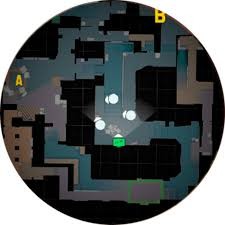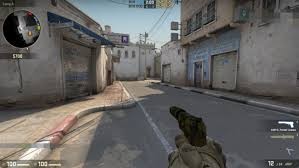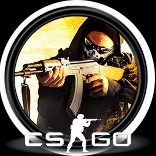Do's and don'ts in cs:go
There are some things you don't want to do in cs:go
one of the most important things to do is mastering communication. Clear, concise communication is crucial for team success. Callouts, such as identifying enemy locations, spotting bomb carriers, or relaying information about sightlines, give your teammates a tactical advantage. It's also essential to communicate subtle details like hearing footsteps or noticing enemy utilities like smokes or flashes. Another key aspect is learning economy management. In CS
, the game’s economy dictates what weapons and gear you can buy in each round. A well-coordinated team knows when to spend and when to save ("eco"). A balanced economy keeps your team competitive and ready to win key rounds. Watching the enemy’s economy is equally important, as it can help you anticipate their strategies—whether they’ll be on a full buy or saving with weaker weapons. Lastly, practice map control by learning the layout of each map. Knowing how to navigate choke points, angles, and bomb sites can give you a massive advantage. Holding key areas with your team allows you to dictate the flow of the game, forcing the enemy to react to your positioning.

On the other hand, some actions are sure to lead to frustration or losses, and these are the things not to do in CS
. First, don’t overextend. Rushing into enemy lines without backup or blindly charging ahead without intel will often lead to your quick elimination. It’s tempting to try for heroic plays, but more often than not, overextending leaves your team one player down, making it harder to win the round. Another key aspect that most noobs do is ignoring sound cues. Sound plays a massive role in CS
—footsteps, weapon reloads, and grenade pins all give away critical information about the enemy's location. If you ignore sound, you risk being ambushed or flanked. Additionally, don’t tilt or blame your teammates. Tilting (getting frustrated and playing worse as a result) can quickly spiral into poor decisions. Blaming your teammates only creates tension and makes it harder to communicate effectively. In a game that relies heavily on teamwork, staying composed and focusing on your own gameplay is essential. A positive attitude helps keep team morale up and allows everyone to stay focused on the win.

 100
Play
100
Play
A major aspect in CS
is focusing on improving your aim and movement. Aim is the cornerstone of success in CS
, and practicing it through training maps or deathmatch modes will help you become more consistent in landing your shots. Each weapon has its own recoil pattern, and mastering these patterns can significantly improve your accuracy. Along with aim, proper movement—such as strafing, crouching, and counter-strafing—will make you harder to hit while keeping your own shots accurate. Another crucial “do” is learning and utilizing grenades effectively. Smoke, flashbangs, and molotovs can change the flow of a round entirely by blocking sightlines, forcing enemies out of cover, or providing a safe route to push. On the “don’t” side, don’t over-rely on expensive weapons like the AWP unless you’re proficient with them. The AWP is a powerful but costly sniper rifle, and using it improperly can waste valuable resources. If you’re not comfortable with it, it’s better to use rifles like the AK-47 or M4, which offer more versatility. Finally, don’t be rigid in your playstyle—adapt to the flow of the match. Every round presents new challenges, and your ability to change tactics on the fly is what will ultimately lead your team to victory.


